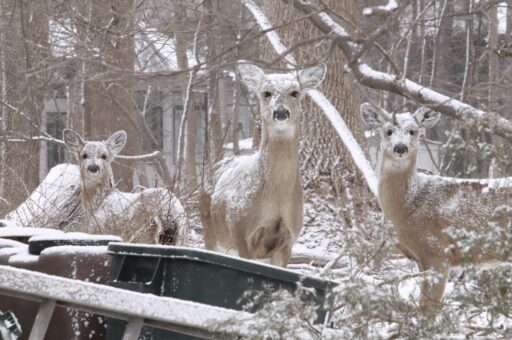A freezing rain warning has been issued for Montreal, signaling a treacherous mix of icy precipitation and snowflakes expected to hit the city on Tuesday. Residents are advised to prepare for hazardous road conditions and potential disruptions as hours of sleet and snow take over the area.
The Impact on Daily Life
Montrealers will have to brace themselves for challenging commutes with slick roads and sidewalks. This severe weather alert means that everyone should be extra cautious when venturing outdoors. Icy surfaces can lead to dangerous slips and falls, making it essential to wear proper footwear and avoid unnecessary travel if possible.
Beyond individual movement, the freezing rain is likely to affect public transportation services. Buses and trains may face delays or cancellations due to ice accumulation on tracks and roads, while flights could be grounded or rescheduled. It’s crucial for travelers to stay updated on service advisories and adjust their plans accordingly.
Preparation Steps for Residents
- Check local weather updates frequently.
- Stock up on essentials like food, water, and medications.
- Ensure your home is equipped with an adequate heating source.
- Prepare an emergency kit with flashlights, batteries, and first-aid supplies.
- Keep cell phones charged and have alternative power sources ready.
These precautionary measures can help mitigate the inconveniences brought about by this intense weather event. Being well-prepared ensures a safer experience throughout the duration of the storm.
Weather Forecast and Expected Severity
The National Weather Service (NWS) warns that the upcoming freezing rain could last several hours, with significant ice accumulation posing risks to infrastructure. Trees and power lines weighed down by ice might snap, leading to power outages in affected areas. Additionally, freezing rain often transitions into sleet or wet snow, complicating efforts to clear roads and walkways.
This multifaceted wintry mix creates complex scenarios for meteorologists and emergency responders alike. Their priority is ensuring the public remains informed and equipped to handle any developments throughout the storm’s progression. The combination of ice and snow increases the difficulty of navigation and cleanup, underscoring the importance of meticulous preparation and caution.
Forecast Details and Predictions
According to the NWS, Montreal could see ice accumulation reaching up to 10 millimeters, creating especially risky conditions for elevated structures such as bridges and overpasses. These areas tend to freeze quicker and more intensely compared to ground-level paths.
The timing of the storm is slated to coincide with peak commuting hours, spelling trouble for drivers. Winter tires and defensive driving techniques become critical under such conditions. Motorists should maintain extended following distances, reduce speed, and brake gently to prevent skidding.

Broader Regional Concerns
While Montreal braces for freezing rain, other parts of Canada and the United States are also experiencing winter warnings. A major winter storm has prompted alerts across six U.S. states, from California to Colorado. Heavy snowfall is anticipated, with some regions preparing for feet of snow rather than inches.
As travelers head into Thanksgiving week, these widespread weather challenges could mean significant disruptions. Airports, highways, and railways face increased strain as they deal with both heightened traffic and severe weather conditions. From Utah’s mountains expecting up to three feet of snow to arctic blasts sweeping through Colorado, the logistical hurdles are considerable.
Comparing Impacts and Preparedness
The situation highlights the need for comprehensive preparedness strategies across regions dealing with varying forms of extreme winter weather. While freezing rain requires specific countermeasures, heavy snowfall brings its own set of challenges, including snow removal and maintaining visibility on roads.
Residents in both countries are urged to heed local warnings and adopt safety measures tailored to their respective forecasts. Staying indoors during peak storm periods and keeping emergency contact numbers handy can greatly enhance personal safety amid these natural occurrences.
Response from Authorities
Government and city officials are not taking the warning lightly. Efforts are being ramped up to ensure public safety and minimize disruption. Road crews are pre-treating highways and salting major intersections to keep traffic moving as smoothly as possible. Emergency services are on high alert, ready to respond to accidents or emergencies resulting from the freezing rain.
Authorities emphasize the importance of community cooperation in such times. Clear communication channels between officials and citizens are vital for timely updates and effective crisis management. Social media platforms, emergency hotlines, and local news outlets are being utilized extensively to disseminate information rapidly.
Public Advice and Directives
The message from officials is clear: stay home if you can. Employers are encouraged to allow remote work arrangements where feasible. Schools may consider switching to virtual classes or shortening school days to limit student exposure to hazardous conditions.
Moreover, utility companies are preparing for possible power outages with additional workforce and equipment ready to tackle repairs promptly. Residents are reminded to report any fallen power lines or outages immediately while avoiding contact with potentially live wires.
Community Support Initiatives
In times of severe weather events, community initiatives play a crucial role in supporting vulnerable populations. Volunteer organizations and neighborhood groups often mobilize to assist the elderly and those with mobility issues who might struggle more during icy conditions.
Local shelters may also gear up to accommodate individuals without stable housing, providing warmth and safety amid freezing temperatures. Donations of blankets, warm clothes, and non-perishable food items become invaluable during such outreach efforts.
Success Stories and Ongoing Needs
Instances of community resilience and solidarity shine brightest during adverse times. Stories of neighbors clearing each other’s driveways, delivering groceries to shut-ins, and checking on each other’s welfare underscore the human spirit’s capacity for kindness and cooperation.
Despite successful past initiatives, continuous improvement is needed for future responses. Lessons learned from each storm can inform better strategies, stronger networks, and faster interventions. Marc Landry, a local volunteer coordinator, emphasizes the evolving nature of community needs and the importance of staying prepared year-round.






